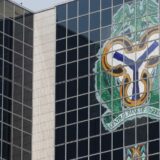CBN Holds Monetary Policy Rate at 27.5% Amid Signs of Inflation Easing
Abuja, May 20, 2025 – The Central Bank of Nigeria (CBN) has decided to retain the Monetary Policy Rate (MPR) at 27.5% following its 300th Monetary Policy Committee (MPC) meeting held in Abuja. The unanimous decision by all 12 MPC members reflects a cautious approach as the bank monitors improving macroeconomic indicators and global uncertainties.
Key Monetary Policy Decisions
- Monetary Policy Rate (MPR): Maintained at 27.5%
- Asymmetric Corridor: Kept at +500/-100 basis points around the MPR
- Cash Reserve Ratio (CRR): Held at 50% for Deposit Money Banks and 16% for Merchant Banks
- Liquidity Ratio: Left unchanged at 30%
CBN Governor Olayemi Cardoso stated that the decision to hold rates steady was influenced by recent signs of moderation in inflation and the need to better understand near-term economic developments.
Inflation and Economic Outlook
The MPC noted that Nigeria’s headline inflation rate eased to 23.71% in April 2025 from 24.23% in March, marking a positive trend after months of persistent price pressures. Monthly inflation declined from 3.9% to 1.86%, while core inflation fell from 24.43% to 23.39%. Food inflation also showed a slight decrease.
Additional factors supporting the decision included:
- Narrowing gap between official and parallel foreign exchange rates
- Positive balance of payments position
- Easing fuel prices due to government policies
- Improved food supply and better security in farming communities
Despite these improvements, the CBN acknowledged ongoing inflationary pressures stemming from high electricity tariffs, sustained foreign exchange demand, and structural economic challenges.
Market and Public Reaction
The retention of the MPR at 27.5% marks the second consecutive hold in 2025 after six consecutive hikes in 2024. While some stakeholders, including the Organised Private Sector (OPS), have called for a reduction in interest rates to stimulate business growth, the CBN maintains a cautious stance to anchor inflation expectations and preserve naira stability.
Analysts also pointed to global economic uncertainties, including trade protectionism and fluctuating oil prices, as reasons for the bank’s conservative policy approach.

















